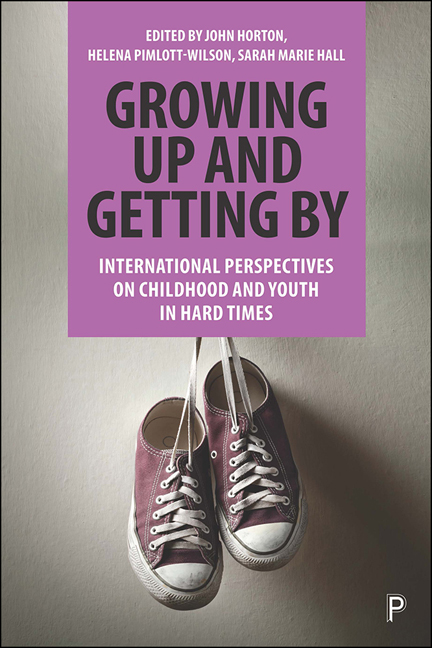9 - Infantilised parents and criminalised children: the frame of childhood in UK poverty discourse
Published online by Cambridge University Press: 18 December 2021
Summary
Introduction
Over the last decade, UK governments appear to have utilised various discursive frames of childhood to claim that they are tackling child poverty (despite putting in place no real measures to do so), and to shift the blame for poverty from their own decimation of structures for economic advancement and protection, to the so-called ‘troubled’ cultures of poor families. This chapter interrogates this policy climate and argues that part of what has allowed governments to justify and obfuscate their abandoning of poverty as a key policy focus was, and is, deployments of discourses of ‘childhood’. The Coalition (2010–15) and Conservative (2015–) governments, we argue, have mobilised two distinct discourses of childhood, simultaneously infantilising poor parents and adultifying poor children. Together, these somewhat contradictory processes suggest that the frame of childhood is central not only to the discourses that continue to blame the poor family for their own poverty, but also to the processes that have seen children and young people bear the brunt of a decade of austerity and anti-welfare politics in the UK. Evoking childhood to substantiate their spurious frames of ‘worklessness’ and ‘troubled families’, the austerity-era governments have worked to move poverty discourse away from material and towards cultural and criminalised understandings of poverty. Our chapter thus investigates these shifts with reference to the frame of childhood, focusing specifically on how ‘childhood’ is deployed as part of the individualisation, culturalisation and criminalisation of disadvantage or poverty.
To make this argument we must first explain what we mean by childhood as a framing device. Here, childhood is understood as both a lived stage of life, and a figuration. As has been argued elsewhere, ‘childhood’ must be understood as a motivated term whose uneven distribution to individuals and populations facilitates various claims in and as the political (Berlant, 1997; Castañeda, 2002; Edelman, 2004; Levander, 2006; Bernstein, 2011; Breslow, 2019). In this conceptualisation, childhood is not just a description of a particular stage of life, nor an age group, but rather an expansive and constricting location within particular relationships of power. ‘Childhood’ often excludes many subjects within the early years of life, while simultaneously expanding outwards to ‘stick’ to older subjects.
- Type
- Chapter
- Information
- Growing Up and Getting By , pp. 175 - 192Publisher: Bristol University PressPrint publication year: 2021



